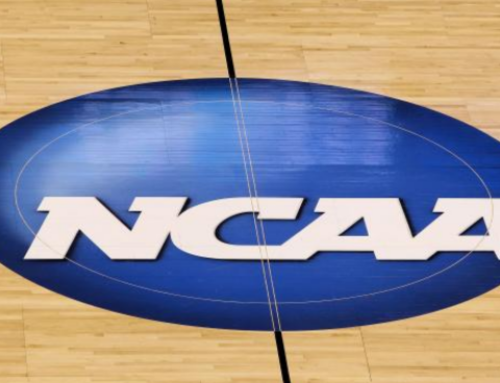Three Benefits of Being a Young, Multi-Sport Athlete
Children are specializing in sports at increasingly younger ages. I have to wonder why. Is it because their parents or coaches believe their kids are the next (insert the greatest player in the history of his/her sport here)?
It’s much better for a young person to be a multi-sport athlete. Specializing too early hurts an athlete’s overall athletic performance and development.
As a private baseball and softball instructor, I am partially to blame. My hitting and fielding students don’t just want their skills tweaked during the season. They call me during the winter to make sure their skills don’t diminish.
I understand the thought process, but most of them have such good mechanics (shameless pat on the back) that they don’t need much work in the off-season. I don’t have an issue coming to work a few weeks before school starts, but making baseball and softball a 12-month job at their age is unnecessary.
Let’s look at three benefits of playing more than one sport.
1. Prevents muscle fatigue and overuse
When young athletes play a single sport, they use the same muscles over and over again. This increases their risk of injury. Building muscle memory is a good thing, but overuse is not. Growing bodies need to work different planes, or muscles will actually weaken and develop imbalances.
A child who plays more than one sport works more muscles, which improves overall balance and symmetry. I have trained many baseball and softball players who were soccer, lacrosse or field hockey players in the off-season. They noticed how playing a second sport loosened their shoulders and arms, strengthened their legs and increased their endurance for baseball and softball.
2. Prevents mental and emotional burnout
One of my best softball players wanted to quit before her senior season. She played only softball and trained her hitting, fielding, and conditioning year-round with me. When she showed up to her regular Sunday morning hitting session one day in January and started crying half way through, I knew something was seriously wrong. She said she was done and wanted to quit. She was willing to walk away from a dozen or so scholarship offers because she just didn’t want to play softball any more.
I convinced her to put all of her softball gear away until her high school team started to practice and asked her to wait to make her decision then. She had the best season of her high school career. She missed the game and loved playing it again. Sometimes we forget that these big, strong, athletes are still kids and need a change of scenery from time to time.
3. It doesn’t get in the way of greatness
Derek Jeter played basketball in high school. Michael Jordan played baseball. All of these great stars were multi-sport athletes growing up, and it didn’t hurt their professional careers.
RELATED
RECOMMENDED FOR YOU
Three Benefits of Being a Young, Multi-Sport Athlete
Children are specializing in sports at increasingly younger ages. I have to wonder why. Is it because their parents or coaches believe their kids are the next (insert the greatest player in the history of his/her sport here)?
It’s much better for a young person to be a multi-sport athlete. Specializing too early hurts an athlete’s overall athletic performance and development.
As a private baseball and softball instructor, I am partially to blame. My hitting and fielding students don’t just want their skills tweaked during the season. They call me during the winter to make sure their skills don’t diminish.
I understand the thought process, but most of them have such good mechanics (shameless pat on the back) that they don’t need much work in the off-season. I don’t have an issue coming to work a few weeks before school starts, but making baseball and softball a 12-month job at their age is unnecessary.
Let’s look at three benefits of playing more than one sport.
1. Prevents muscle fatigue and overuse
When young athletes play a single sport, they use the same muscles over and over again. This increases their risk of injury. Building muscle memory is a good thing, but overuse is not. Growing bodies need to work different planes, or muscles will actually weaken and develop imbalances.
A child who plays more than one sport works more muscles, which improves overall balance and symmetry. I have trained many baseball and softball players who were soccer, lacrosse or field hockey players in the off-season. They noticed how playing a second sport loosened their shoulders and arms, strengthened their legs and increased their endurance for baseball and softball.
2. Prevents mental and emotional burnout
One of my best softball players wanted to quit before her senior season. She played only softball and trained her hitting, fielding, and conditioning year-round with me. When she showed up to her regular Sunday morning hitting session one day in January and started crying half way through, I knew something was seriously wrong. She said she was done and wanted to quit. She was willing to walk away from a dozen or so scholarship offers because she just didn’t want to play softball any more.
I convinced her to put all of her softball gear away until her high school team started to practice and asked her to wait to make her decision then. She had the best season of her high school career. She missed the game and loved playing it again. Sometimes we forget that these big, strong, athletes are still kids and need a change of scenery from time to time.
3. It doesn’t get in the way of greatness
Derek Jeter played basketball in high school. Michael Jordan played baseball. All of these great stars were multi-sport athletes growing up, and it didn’t hurt their professional careers.
RELATED










